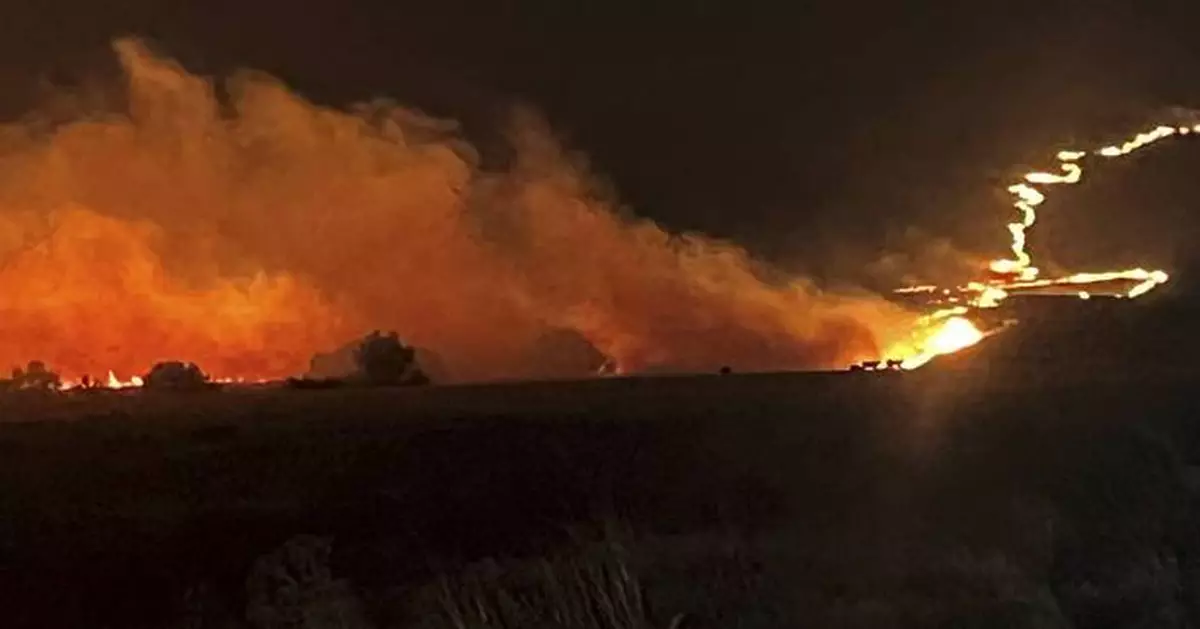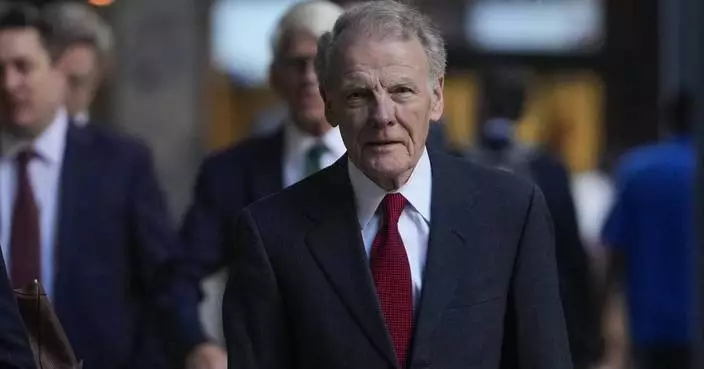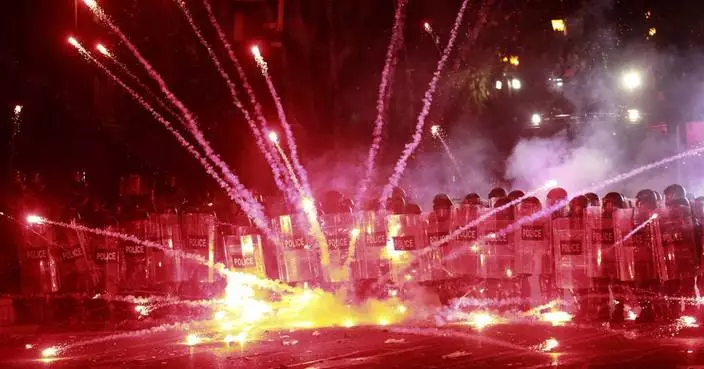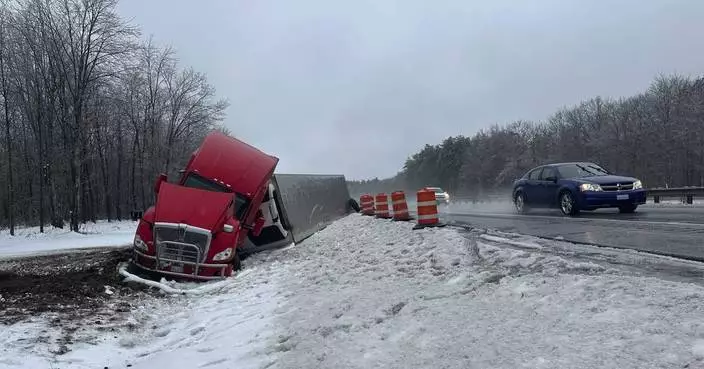SALEM, Ore. (AP) — Oregon lawmakers are convening Thursday for a special session to discuss emergency funding to pay out millions in unpaid bills stemming from the state’s 2024 record wildfire season.
As wildfires still rage in California, Oregon is among several states grappling with steep costs related to fighting wildfires this year. New Mexico lawmakers in a July special session approved millions in emergency aid for wildfire victims, and states including North Dakota and Wyoming have requested federal disaster declarations to help with recovery costs.
Fighting the blazes that scorched a record 1.9 million acres (769,000 hectares), or nearly 2,970 square miles (7,692 square kilometers), largely in eastern Oregon, cost the state over $350 million, according to Gov. Tina Kotek. The sum has made it the most expensive wildfire season in state history, her office said.
While over half of the costs will eventually be covered by the federal government, the state still needs to pay the bills while waiting to be reimbursed.
“The unprecedented 2024 wildfire season required all of us to work together to protect life, land, and property, and that spirit of cooperation must continue in order to meet our fiscal responsibilities,” Kotek said in a late November news release announcing the special session.
Oregon wildfires this year destroyed at least 42 homes and burned large swaths of range and grazing land in the state’s rural east. At one point, the Durkee Fire, which scorched roughly 460 square miles (1,200 square kilometers) near the Oregon-Idaho border, was the largest in the nation.
Kotek declared a state of emergency in July in response to the threat of wildfire, and invoked the state’s Emergency Conflagration Act a record 17 times during the season.
For the special session, Kotek has asked lawmakers to approve $218 million for the Oregon Department of Forestry and the Oregon Department of the State Fire Marshal. The money would help the agencies continue operations and pay the contractors that helped to fight the blazes and provide resources.
The special session comes ahead of the start of the next legislative session in January, when lawmakers will be tasked with finding more permanent revenue streams for wildfire costs that have ballooned with climate change worsening drought conditions across the U.S. West.
In the upcoming legislative session, Kotek wants lawmakers to increase wildfire readiness and mitigation funding by $130 million in the state’s two-year budget cycle going forward. She has also requested that $150 million be redirected from being deposited in the state’s rainy day fund, on a one-time basis, to fire agencies to help them pay for wildfire suppression efforts.
While Oregon’s 2024 wildfire season was a record in terms of cost and acreage burned, that of 2020 remains historic for being among the worst natural disasters in Oregon’s history. The 2020 Labor Day weekend fires killed nine people and destroyed upward of 5,000 homes and other structures.
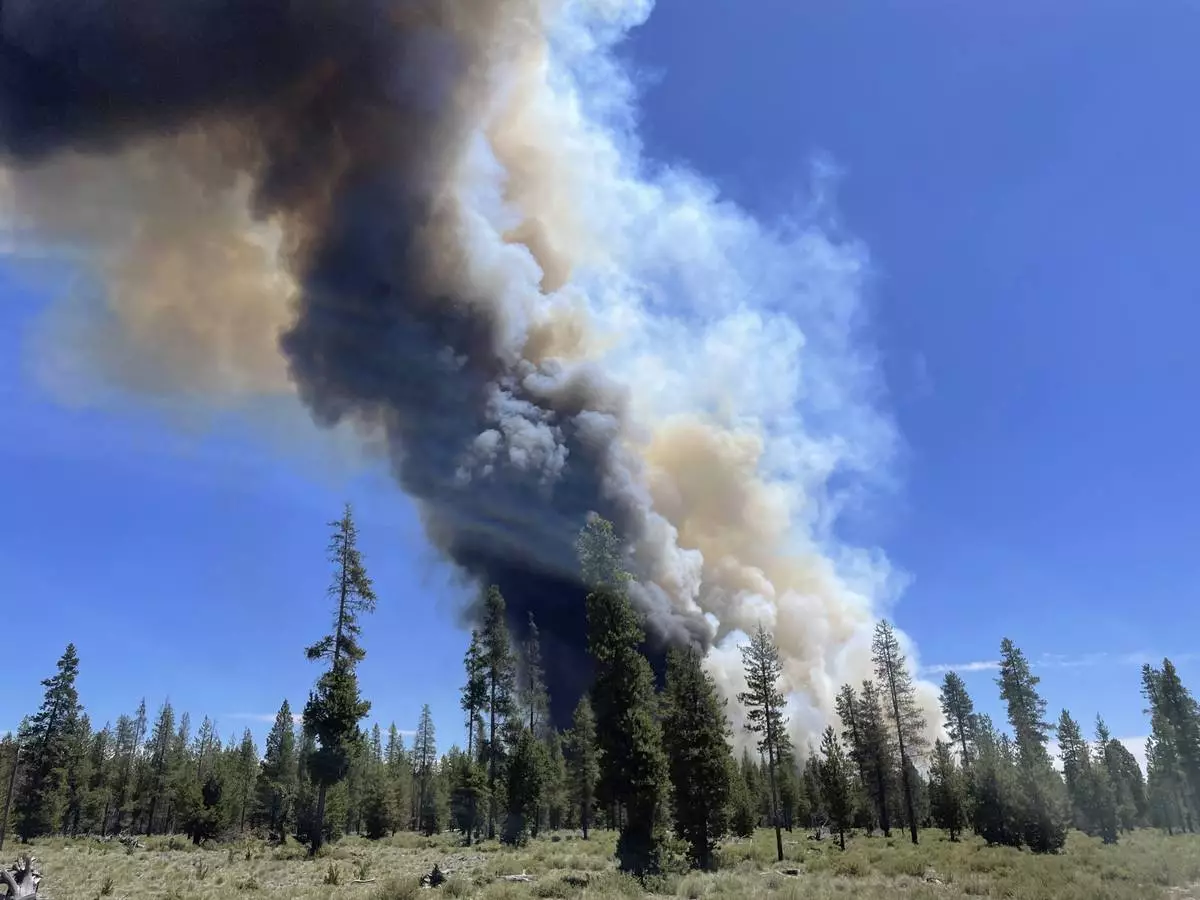
FILE - In this photo provided by the Deschutes County Sherriff's Office, smoke rises from a wildfire near La Pine, Ore., June 25, 2024. (Sgt. Kyle Kalambach/Deschutes County Sherriff's Office via AP, File)
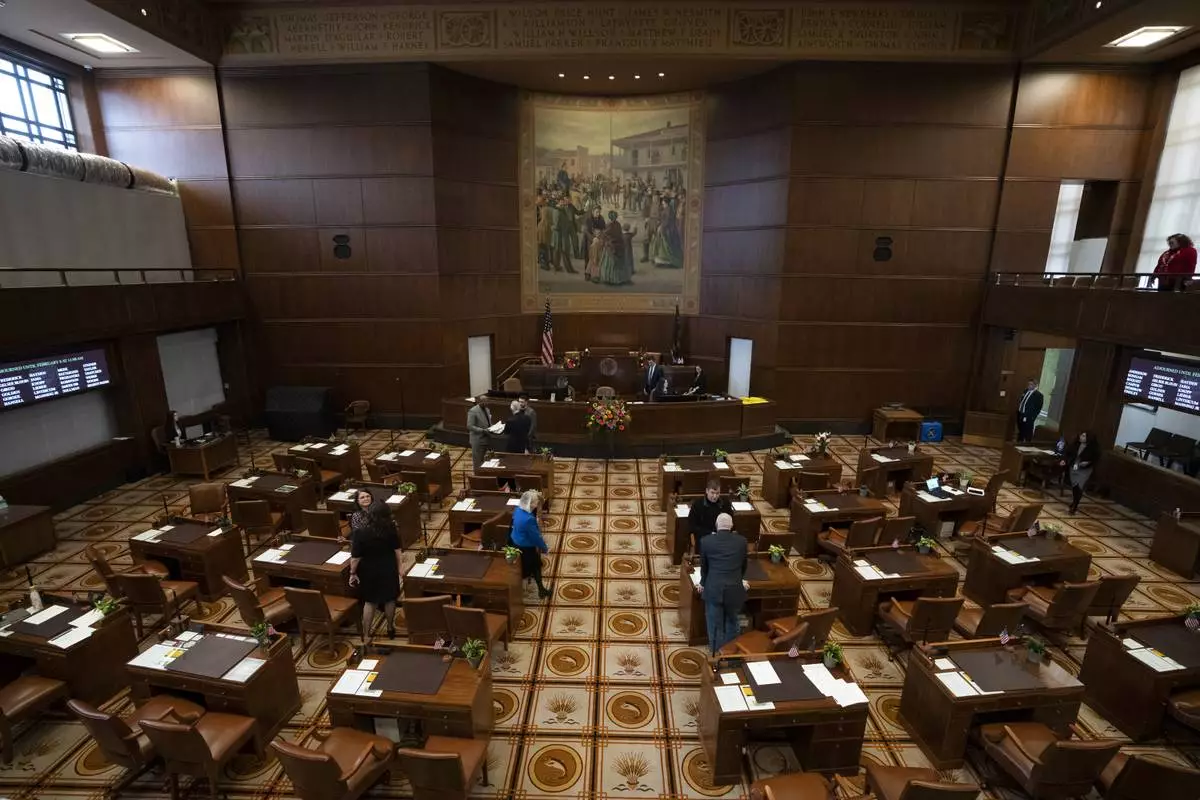
FILE - Members of the Oregon legislature interact on the Senate floor during the first day of the legislative session at the Oregon State Capitol, Feb. 5, 2024, in Salem, Ore. (AP Photo/Jenny Kane, File)
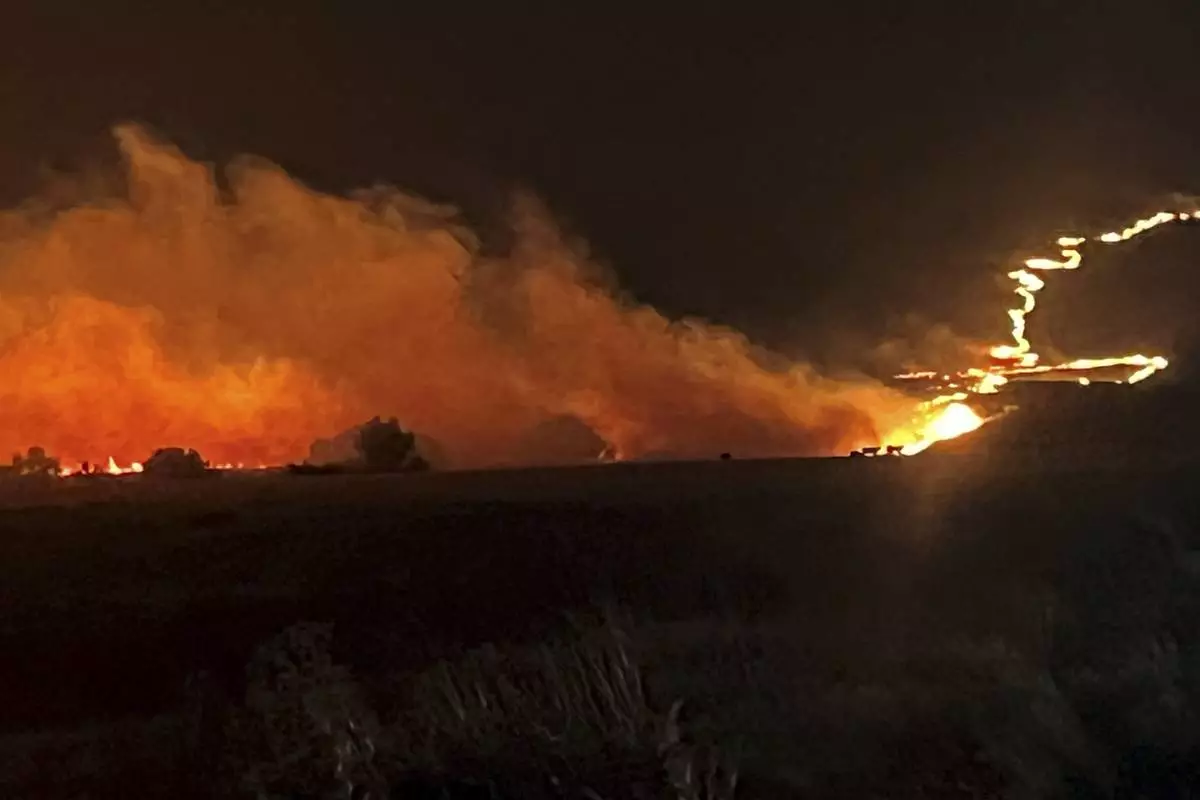
FILE - This photo provided by the Oregon Department of Transportation shows the Durkee Fire burning in eastern Ore., July 22, 2024. (Oregon Department of Transportation via AP, File)
The jihadi rebels who toppled Syrian President Bashar Assad say they want to build a unified, inclusive country. But after nearly 14 years of civil war, putting that ideal into practice will not be easy.
For Syria’s Kurdish minority, America’s closest ally in the country, the struggle for a new order is entering a potentially even more challenging phase.
Over the course of Syria’s civil war, Kurdish fighters have fended off an array of armed factions, partnered with the U.S. to rout the Islamic State group and carved out a largely autonomous region in the country’s oil-rich east.
But the gains of the non-Arab Kurds are now at risk. The ascendance of the Sunni Arab rebels who overthrew Assad — with vital help from Turkey, a longtime foe of the Kurds — will make it hard for the Kurds to find a place in the new Syria and could prolong the conflict.
The jihadi rebels who rode into Damascus over the weekend have made peaceful overtures to the Kurds. But the rebels violently drove Kurdish fighters out of the eastern city of Deir al-Zour days after government forces abandoned it.
To the north, a separate opposition faction backed by Turkey that has been battling the Kurds for years seized the town of Manbij. And Turkey carried out airstrikes on a Kurdish convoy it said was carrying heavy weapons looted from government arsenals.
The Kurds have long counted on U.S. aid in the face of such challenges. Around 900 American troops are in eastern Syria, where they partner with Kurdish forces to prevent an Islamic State resurgence. But the future of that mission will be thrown into doubt under president-elect Donald Trump, who has long been skeptical about U.S. involvement in Syria.
Here's a closer look at the predicament the Kurds find themselves in.
The Kurds are among the largest stateless ethnic groups in the world, with some 30 million concentrated in a territory straddling Turkey, Iran, Iraq and Syria. They are a minority in each country and have often suffered persecution, which has fueled armed Kurdish uprisings.
In Syria, they carved out an autonomous enclave early in the civil war, never fully siding with the Assad government or the rebels seeking to topple him.
When the Islamic State group seized a third of the country in 2014, Kurdish fighters — who are secular and include women in their ranks — proved their mettle in early battles against the extremists, earning support from the U.S.-led coalition.
They formed a group known as the Syrian Democratic Forces, which also includes Arab fighters, and drove the Islamic State group out of large areas of Syria with help from U.S.-led airstrikes and American special forces. In 2017, these Kurdish-led forces captured Raqqa, the capital of the extremists' self-styled caliphate.
Turkey has long viewed the SDF as an extension of the decades-old Kurdish insurgency within its own borders. It considers the main Kurdish faction a terrorist group on par with the Islamic State and has said it should have no presence in the new Syria.
In recent years, Turkey has trained and funded fighters known as the Syrian National Army, helping them wrest control of territory from the Kurds in northern Syria along the border with Turkey. These Turkish-backed fighters have portrayed themselves as part of the opposition against Assad, but analysts say they are largely driven by opportunism and hatred of the Kurds.
The Kurds have focused on battling the SNA in recent years. But the new leadership in Damascus, which also has longstanding ties to Turkey, could open another, much longer front.
The main rebel faction is led by Ahmad al-Sharaa, formerly known as Abu Mohammed al-Golani, a former al-Qaida militant who cut ties with the group eight years ago and says he wants to build a new Syria free of dictatorship that will serve all its religious and ethnic communities.
Nawaf Khalil, head of the Germany-based Center for Kurdish Studies, said the early signs were positive. He said the rebels steered clear of two SDF-controlled enclaves of Aleppo when they stormed the city two weeks ago at the start of their rapid advance across the country.
“It is also positive that they did not speak negatively about the Syrian Democratic Forces," he said.
It remains to be seen if those sentiments will endure. After sweeping into Deir al-Zour this week, a fighter from al-Sharaa's group posted a video saying they would soon advance toward Raqqa and other areas of eastern Syria, raising the possibility of further clashes with the Kurds.
The rebels could still seek some kind of agreement with the Kurds to incorporate them into the post-Assad political order, but that would likely require accepting a degree of Kurdish autonomy in the east. It would also risk angering Turkey, which now appears to be the chief power broker in Syria.
The top U.S. military commander for the Middle East, Army Gen. Erik Kurilla, met with SDF forces in Syria on Tuesday, in a sign of the Biden administration's commitment to the alliance post-Assad.
But things could change on Jan. 20.
Trump has provided few details about his Middle East policy, aside from saying he wants to end the region's wars and keep the United States out of them.
In a social media post shortly before Assad was overthrown, Trump wrote that “Syria is a mess, but is not our friend, & THE UNITED STATES SHOULD HAVE NOTHING TO DO WITH IT. THIS IS NOT OUR FIGHT.”
During his previous term, in 2019, Trump abandoned the Kurds ahead of a Turkish incursion, casting it as the fulfillment of a campaign promise to end U.S. involvement in the region's “endless wars.”
The move prompted heavy criticism, including from prominent Republicans who accused him of betraying an ally. Trump backtracked weeks later, approving a wider mission to secure oil fields in the east. The troops remained where they were and the alliance endured.
Associated Press writer Bassem Mroue in Beirut contributed to this report.
Follow the AP's Syria coverage at https://apnews.com/hub/syria
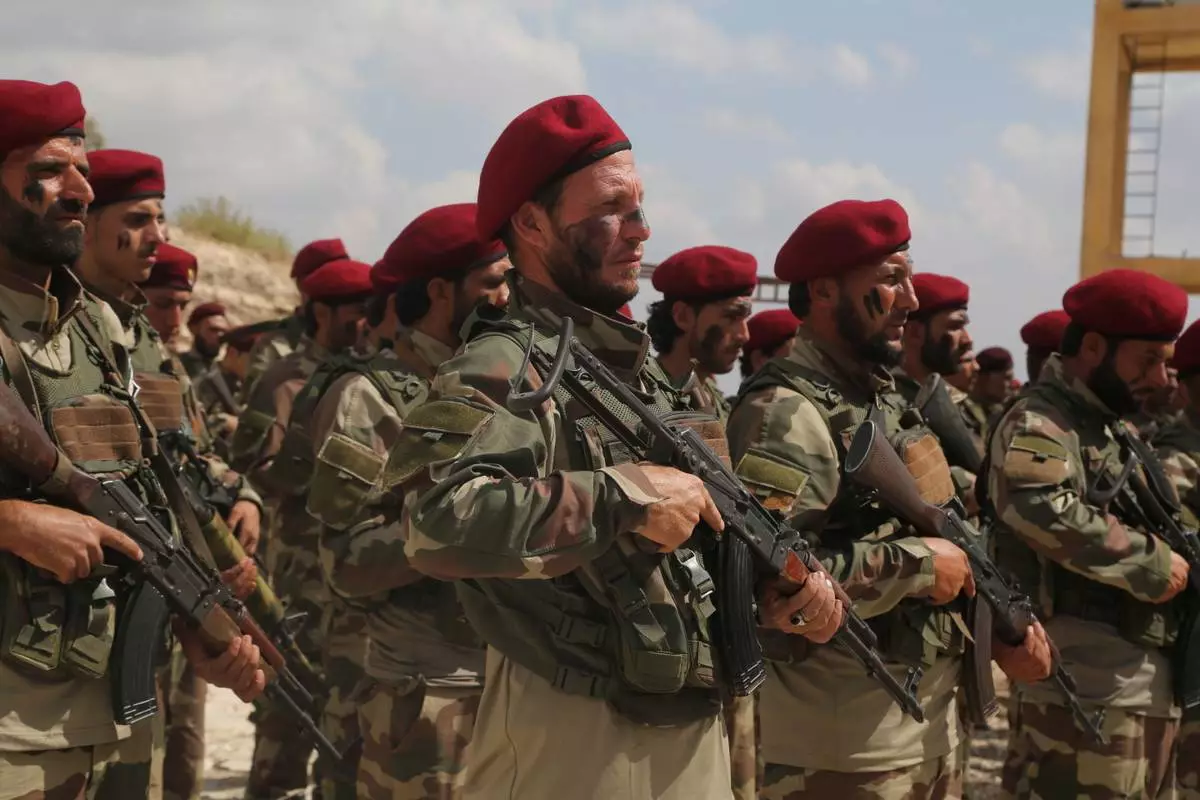
FILE - Turkish-backed Syrian forces stand in formation near the town of Azaz, Syria, on Oct. 7, 2019. (AP Photo, File)
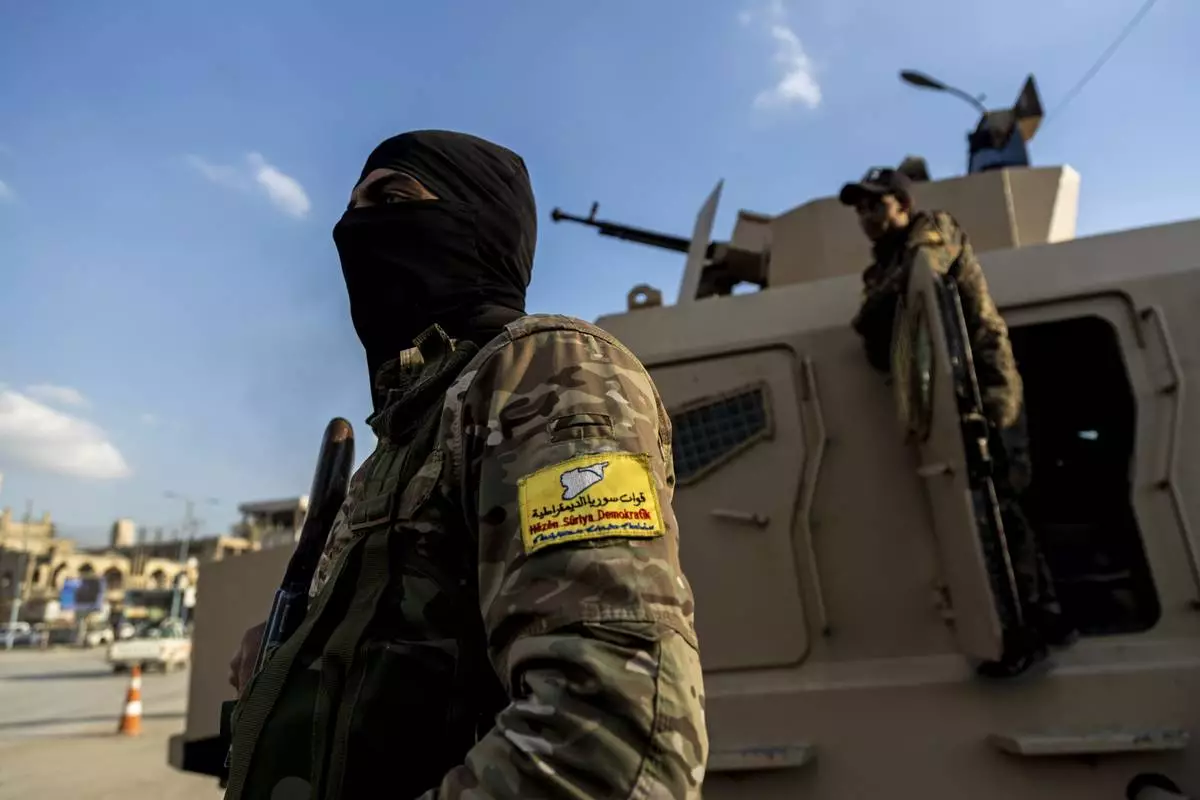
FILE - Kurdish-led fighters backed by the U.S. stand guard in Raqqa, Syria, on Feb. 7, 2022. (AP Photo/Baderkhan Ahmad, File)
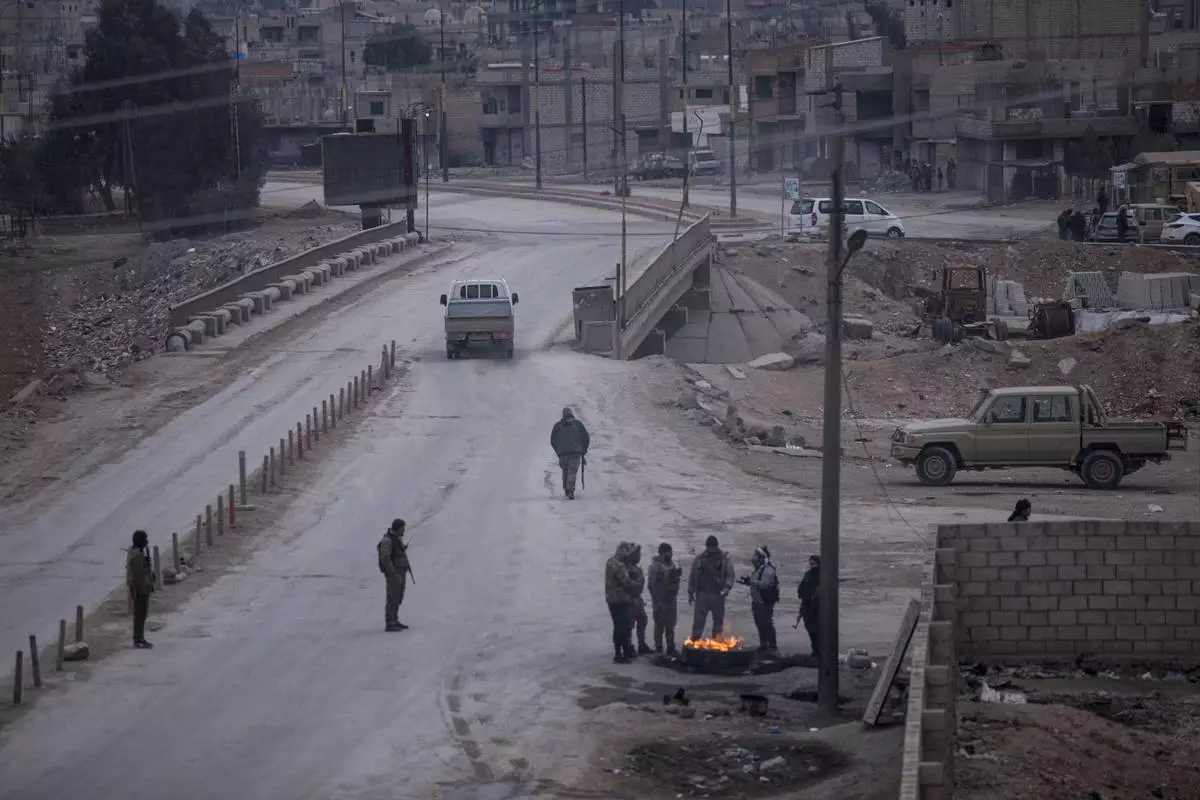
FILE - Kurdish-led fighters backed by the U.S. man a checkpoint in Hassakeh, Syria, on Jan. 24, 2022. (AP Photo/Baderkhan Ahmad, File)
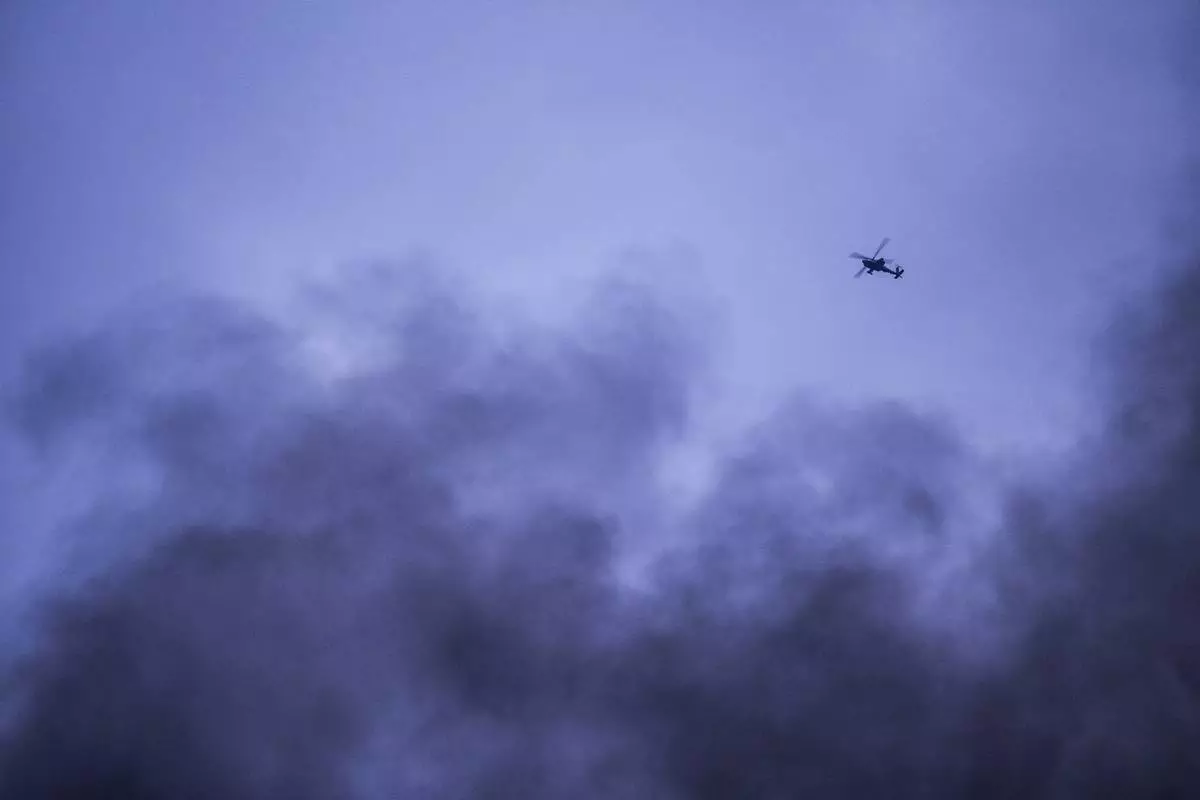
FILE - American attack helicopter flies over Hassakeh, Syria, on Jan. 24, 2022. (AP Photo/Baderkhan Ahmad, File)
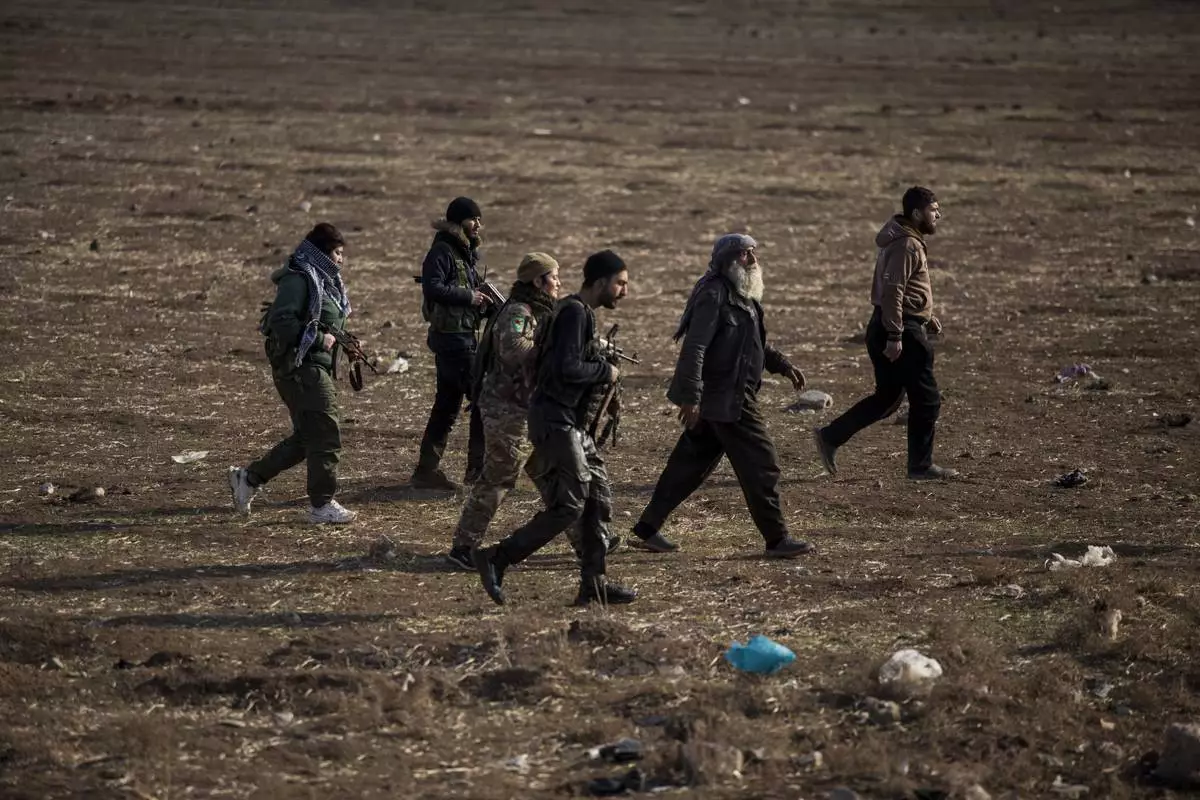
FILE - Kurdish-led fighters backed by the U.S. escort suspected Islamic State militants in Hassakeh, Syria, on Jan. 26, 2022. (AP Photo/Baderkhan Ahmad, File)
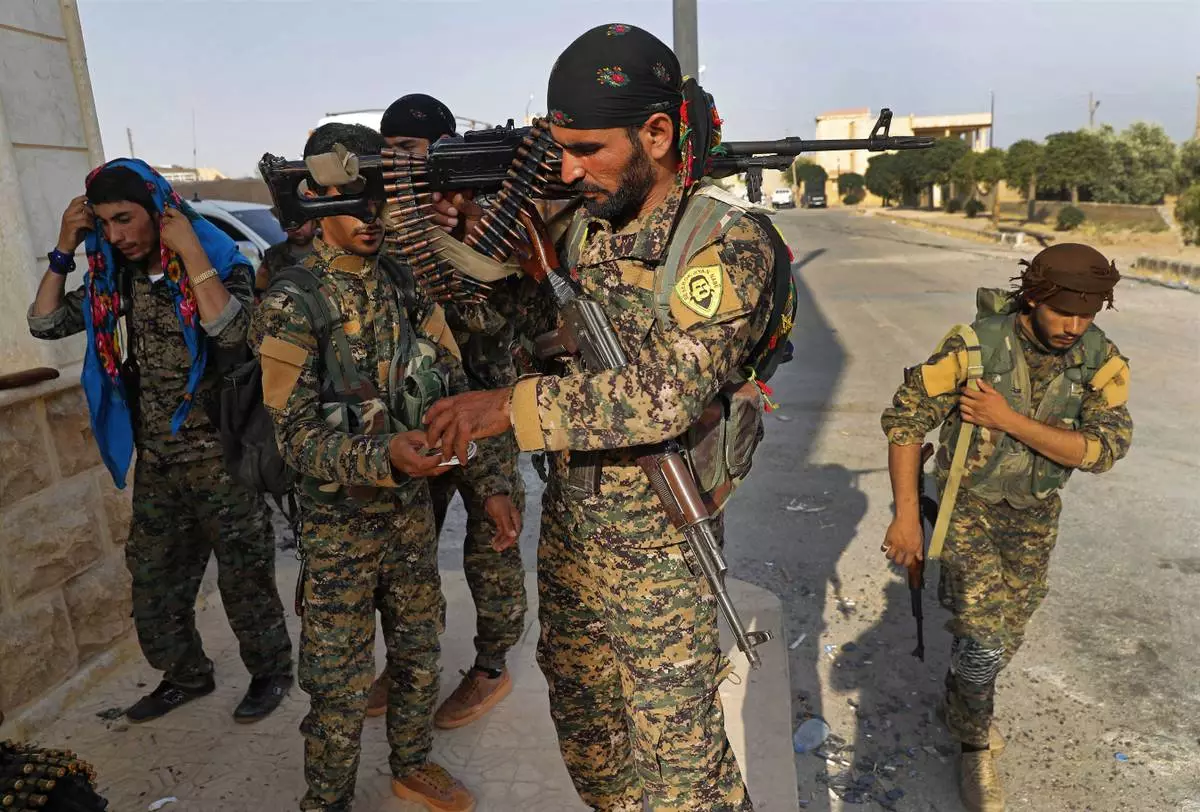
FILE - Kurdish-led fighters backed by the U.S. prepare for battle against Islamic state group militants, in Raqqa, on June 22, 2017. (AP Photo/Hussein Malla, File)





